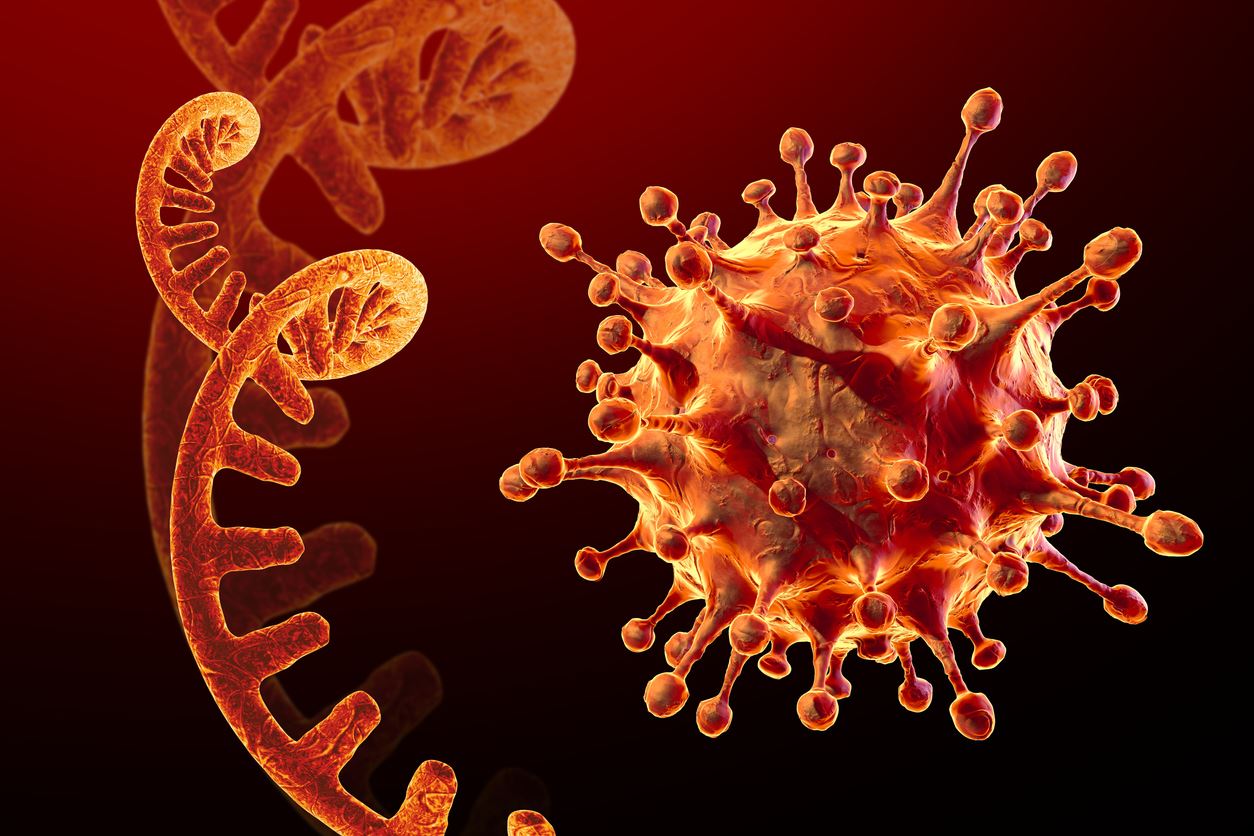 As the winter approaches, U.S. COVID-19 cases and hospitalizations are on the rise, and with the emergence of the new omicron variant, the state of the pandemic could rapidly evolve.
As the winter approaches, U.S. COVID-19 cases and hospitalizations are on the rise, and with the emergence of the new omicron variant, the state of the pandemic could rapidly evolve.
Health officials have warned for months about the potential of a winter surge, with the current uptick largely driven by the delta variant, which remains the dominant strain in the U.S. It's not yet clear whether omicron will outpace delta or how it could change the pandemic's course.
The seven-day average for new daily cases nationwide on Dec. 9 was 119,788, a 30 percent jump over the last two weeks, according to data from The New York Times. Hospitalizations have also risen about 21 percent across the last 14 days, with a daily average of 62,971 on Dec. 9.
The omicron variant had been detected in at least 22 states as of Dec. 9, and while nearly everything health officials know about its transmissibility, illness severity, and vaccines' and treatments' efficacy against it is preliminary, more concrete data is expected to emerge soon.
As the healthcare industry awaits more definite information, Becker's compiled five updates about early omicron findings and the nation's response:
1. President Joe Biden unveiled Dec. 2 a new federal strategy to combat the pandemic, aiming to protect against both omicron and delta variants during the winter months. Efforts include encouraging booster shots and expanding free at-home testing for Americans.
2. As part of the new federal strategy, the CDC tightened COVID-19 testing protocols for air travelers. As of Dec. 6, air travelers entering the U.S. must show proof of a negative COVID-19 test within 24 hours of their flight to help prevent the omicron variant's spread. The rule applies to all air travelers, regardless of vaccination status or citizenship.
3. New data from South Africa suggests the omicron variant may cause less severe infections than delta, though more research is needed to confirm this finding. In a Dec. 4 report, the South African Medical Research Council outlined the early experience of 42 COVID-19 patients treated at several hospitals and found 70 percent of patients didn't need supplemental oxygen, and few developed COVID-19 pneumonia. Four patients required a high level of care, and one patient was placed in intensive care. Overall, the average length of stay was 2.8 days compared to the 8.5-day average seen in COVID-19 patients in the last 18 months.
4. The omicron variant appears to spread more than twice as quickly as delta, according to preliminary findings released by Scientists with the South African COVID-19 Modelling Consortium on Dec. 3. The researchers believe omicron's ability to rapidly spread results from both its contagiousness and ability to dodge the body's immune defenses, though it's unclear how large of a role each factor plays. The findings have yet to be peer reviewed.
5. Pfizer's COVID-19 booster provided significant protection against the omicron variant during a lab study, the drugmaker said Dec. 8. On average, blood samples from people who received only two doses of Pfizer's vaccine saw a 25-fold drop in antibodies against the variant. Blood samples from people who received three doses saw similar neutralization against the omicron variant as the two-dose series provided against the original coronavirus strain. Following the announcement, the FDA authorized the vaccine booster for emergency use for teens ages 16 and 17, a move the CDC endorsed Dec. 9.
###
